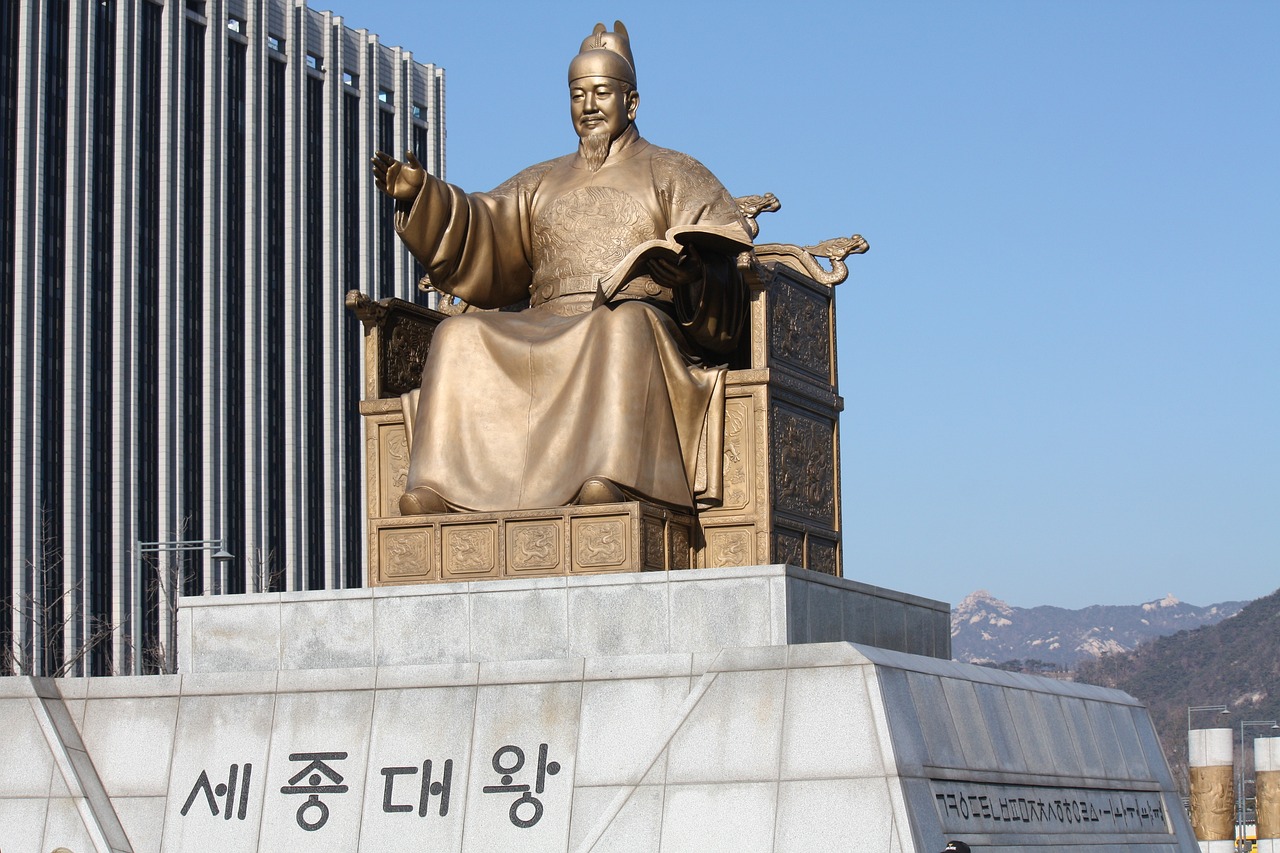Hangul Day: Celebrating Korea’s Unique Script and Cultural Heritage
Hangul Day, 한글날 (Hangeulnal), is a national holiday in South Korea celebrated every year on October 9th. It commemorates the creation and proclamation of Hangul, the Korean alphabet, by King Sejong the Great, 세종대왕 Sejongdaewang, in 1443. You may think that a holiday dedicated to an alphabet is a bit strange. But Hangul is unique for reasons we’ll see below, and it is is a source of immense cultural pride for Koreans. Hangul Day not only honors the linguistic innovation that Hangul represents but also highlights its significance in preserving Korean identity and heritage. The holidays is known as 조선글날 Choseongulnal in North Korea, and it’s celebrated on January 15.
The Birth of Hangul
Before the invention of Hangul, Koreans used Classical Chinese characters, called 한자 Hanja, to write their language. This posed certain problems. Characters require a lot more memorization than writing systems based on sound. But more importantly, Chinese characters aren’t particularly well suited to Korean or any other language with grammatical endings and different ways of building words. These issues created a significant literacy gap, as only the educated elite could master the Chinese characters. The common people, especially peasants, were largely illiterate. This made it hard for them to gain access to education or participate fully in society.
King 세종Sejong, the fourth king of the Joseon Dynasty, recognized this problem. He set out to create a writing system that was simple and easy to learn. This would allow all Koreans, regardless of their class or social status, to read and write. In 1443, after years of research, King Sejong and his scholars developed Hangul, a phonetic script tailored to the Korean language. Their creation was originally known as 훈민정음 Hunminjeongeum, which means “The Correct Sounds for the Instruction of the People.” For its time, Hangul was a groundbreaking development.
Why Hangul is Unique
Hangul is unique because it is a featural alphabet, meaning the shapes of the characters correspond to the sounds they represent. For example, consonants are designed to mimic the shape of the mouth or tongue when pronouncing the represented sound. The vowels, on the other hand, are based on philosophical principles, with horizontal lines representing the Earth, vertical lines for humans, and dots symbolizing the heavens.
The alphabet consists of 14 basic consonants and 10 vowels, which can be combined to form syllabic blocks. This makes Hangul both easy to learn and highly adaptable for expressing a wide range of sounds. Linguists around the world admire Hangul for its logical structure, clarity, and efficiency. It is a far better system for the Korean language than 한자 Hanja.

The Cultural Significance of Hangul Day
Hangul Day was first established in 1926 during the period of Japanese occupation, from 1910 to 1945. The Japanese occupiers suppressed the use of the Korean language and written Hangul. As a result, Koreans saw Hangul as a symbol of resistance and cultural identity. Koreans made efforts to preserve it despite the colonial authorities’ attempts to impose the Japanese language and writing system.
In modern times, Hangul Day serves as a reminder of the importance of linguistic and cultural heritage. It is not just a day to honor the invention of the alphabet, but also a time to celebrate Korea’s rich history and its ongoing efforts to promote literacy and education. South Korea boasts one of the highest literacy rates in the world, and this is largely attributed to the accessibility of Hangul.
On Hangul Day, various events and activities take place across the country. Scholars, writers, and linguists gather to discuss the significance of Hangul in contemporary society. Exhibitions, performances, and educational programs also highlight the impact of the Korean language on the nation’s development.
A Celebration of Language as a Cultural Achievement
Hangul Day is a celebration of one of Korea’s most important cultural achievements. The creation of Hangul transformed Korean society by making literacy accessible to all, regardless of status or education level. Today, Hangul stands not only as a powerful symbol of Korea’s intellectual and cultural legacy but also as a testament to the enduring value of linguistic innovation in fostering national unity and identity.
Learn Korean with the Language Garage
We hope you’ve enjoyed learning a little bit about Hangul Day. If you’d like to learn more, check out our other posts on Korean language, culture, and more. And if you’re looking for convenient and affordable live Korean lessons with a real teacher, check out The Language Garage. Our lessons are given online in a virtual classroom, so it doesn’t matter where you live or work – we can come to you. And we have flexible options, with a free trial so that you can decide if there’s a fit. Check us out!






